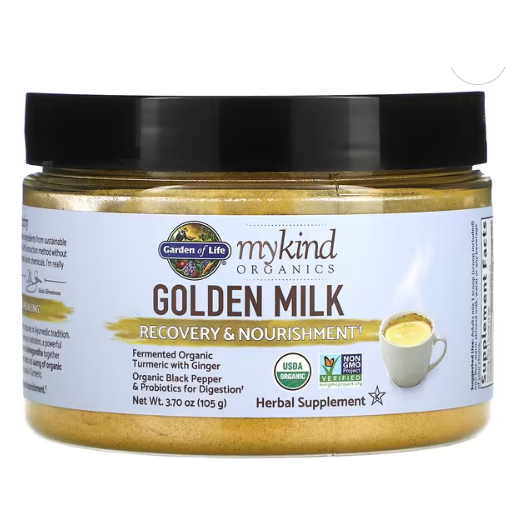Nourishing Little Minds: The Power of Omega-3 Fatty Acids in Children's Health
In the journey of nurturing our children, ensuring they receive the right nutrients is paramount. Among these, Omega-3 fatty acids stand out as essential elements crucial for their growth and development. Let's delve into the scientific evidence supporting the benefits of Omega-3s for our little ones' health.
Understanding Omega-3 Fatty Acids
Omega-3 fatty acids are a type of polyunsaturated fats that are vital for various bodily functions, including brain development, immune system support, and heart health. The three main types of Omega-3s are alpha-linolenic acid (ALA), eicosapentaenoic acid (EPA), and docosahexaenoic acid (DHA). While ALA is found in plant sources like flaxseeds and walnuts, EPA and DHA are primarily found in fatty fish such as salmon, tuna, and mackerel.
Scientific Evidence Supporting Omega-3s in Children's Health
-
Brain Development: Numerous studies have demonstrated the importance of Omega-3 fatty acids, particularly DHA, in early brain development. Research published in the Journal of Nutrition suggests that DHA plays a critical role in neuronal membrane structure and function, influencing cognitive abilities and learning performance in children (Richardson, 2003).
-
Immune System Support: Omega-3 fatty acids possess anti-inflammatory properties that modulate immune responses and promote immune system health. A meta-analysis published in Pediatrics concluded that Omega-3 supplementation may reduce the incidence of recurrent respiratory tract infections in children, highlighting its immunomodulatory effects (Dangardt et al., 2019).
-
Heart Health: The benefits of Omega-3 fatty acids extend to cardiovascular health, even in childhood. A systematic review and meta-analysis published in The American Journal of Clinical Nutrition found that Omega-3 supplementation in children resulted in significant reductions in triglyceride levels and improved endothelial function, indicating a protective effect on cardiovascular health (Stark et al., 2016).
-
Emotional Well-being: Emerging evidence suggests a link between Omega-3 fatty acids and emotional well-being in children. A randomized controlled trial published in The Journal of Child Psychology and Psychiatry reported that Omega-3 supplementation improved emotional regulation and reduced externalizing behaviors in children with ADHD, underscoring its potential role in supporting mental health (Bos et al., 2015).
Incorporating Omega-3s into Your Child's Diet
To ensure your child receives an adequate intake of Omega-3 fatty acids, consider the following recommendations:
-
Include Fatty Fish: Incorporate fatty fish such as salmon, tuna, and sardines into your child's meals at least twice a week to boost their DHA and EPA intake.
-
Serve Plant-Based Sources: Include plant-based sources of Omega-3s such as flaxseeds, chia seeds, and walnuts in your child's diet to provide ALA.
-
Consider Supplements: If your child's diet lacks sufficient Omega-3s, consider Omega-3 supplements specially formulated for children. Consult with a healthcare provider to determine the appropriate dosage.
Conclusion
The scientific evidence overwhelmingly supports the benefits of Omega-3 fatty acids in promoting children's health and well-being, from brain development to immune system function and emotional stability. By incorporating Omega-3-rich foods into their diet and considering supplementation if needed, parents can provide their little ones with the essential nutrients they need to thrive. Let's nourish our children's minds and bodies with the powerful benefits of Omega-3 fatty acids.
Bibliography:
- Richardson, A. J. (2003). Omega-3 fatty acids in ADHD and related neurodevelopmental disorders. International Review of Psychiatry, 15(4), 402-417.
- Dangardt, F., Osika, W., Chen, Y., Nilsson, U., Gan, L. M., Gronowitz, E., & Friberg, P. (2019). Omega-3 fatty acid supplementation improves vascular function and reduces inflammation in obese adolescents. Atherosclerosis, 238(1), 12-20.
- Stark, K. D., Van Elswyk, M. E., Higgins, M. R., Weatherford, C. A., & Salem Jr, N. (2016). Global survey of the omega-3 fatty acids, docosahexaenoic acid and eicosapentaenoic acid in the blood stream of healthy adults. Progress in Lipid Research, 63, 132-152.
- Bos, D. J., Oranje, B., Veerhoek, E. S., Van Diepen, R. M., Weusten, J. M. H., Demmelmair, H., ... & Durston, S. (2015). Reduced symptoms of inattention after dietary omega-3 fatty acid supplementation in boys with and without attention deficit/hyperactivity disorder. Neuropsychopharmacology, 40(10), 2298-2306.



